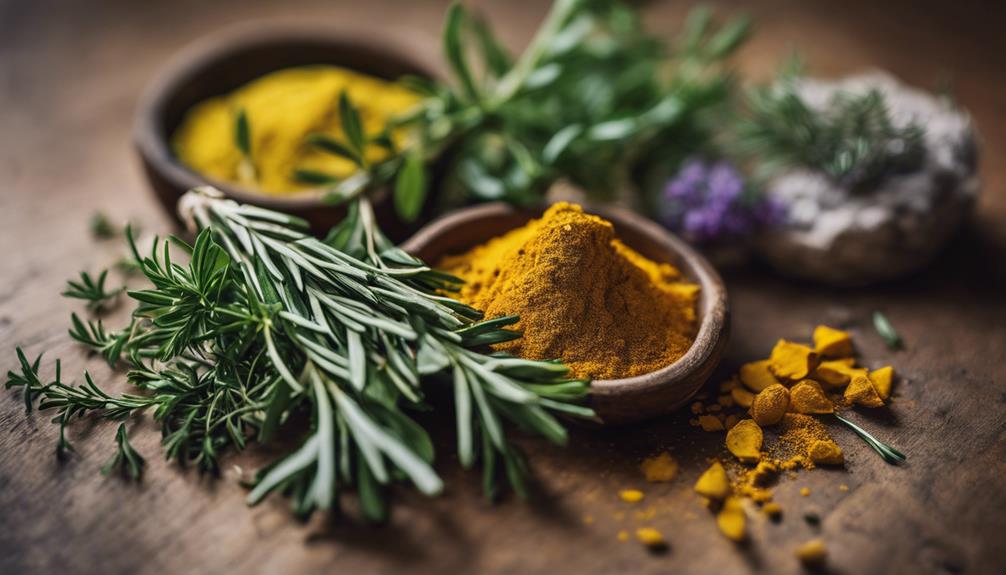St. John’s Wort has a long history as a natural remedy for mood issues, especially in European tradition. Some scientific studies show it can help with mild to moderate depression and may have additional benefits like antioxidant effects. However, it also has risks, including interactions with medications and photosensitivity. Whether it’s effective or just hype depends on your personal situation. Keep exploring to discover more about its true potential and how it fits into your health choices.
Key Takeaways
- Scientific evidence suggests St. John’s Wort may help mild to moderate depression but is less effective for severe cases.
- Its antioxidant and anti-inflammatory properties offer potential health benefits beyond mood improvement.
- Side effects like photosensitivity and interactions with medications pose safety concerns; professional consultation is recommended.
- Variability in herbal preparations affects consistency and reliability of its antidepressant effects.
- Overall, it’s a promising natural option, but thorough research and medical advice are essential before use.
The History and Traditional Use of St. John’s Wort

St. John’s Wort has a long history rooted in traditional medicine. Originally, people in Europe used it for various ailments like wounds, burns, and nerve pain. Its bright yellow flowers caught attention as a symbol of vitality and healing. Medieval herbalists believed the plant could ward off evil spirits and bring good health. In ancient Greece and Rome, it was valued for its supposed ability to boost mood and treat melancholy. Over centuries, different cultures adopted its use, often applying it as a poultice or tincture. Though its reputation as a remedy predates modern science, many of these traditional uses centered on emotional and physical well-being. Today, its historical significance continues to influence its popularity as a natural treatment option.
Scientific Evidence on Effectiveness for Depression

Recent scientific studies have examined whether St. John’s Wort effectively treats depression. Research shows mixed results, with some trials indicating significant improvement in mild to moderate depression symptoms. However, other studies highlight inconsistent outcomes and question its overall efficacy. When evaluating the evidence, consider these key points:
- Multiple randomized controlled trials compare St. John’s Wort to placebo and standard antidepressants.
- Some studies report comparable results to conventional medications, with fewer side effects.
- Variability in herbal preparations makes standardization difficult, affecting outcomes.
- Meta-analyses suggest it may work better for mild depression but less so for severe cases.
- More high-quality research is needed to confirm its true effectiveness and safety profile.
Potential Benefits Beyond Mood Improvement

Beyond its potential to improve mood, St. John’s Wort may offer other health benefits. Some studies suggest it has antioxidant properties, which can help protect your cells from damage caused by free radicals. This could support your overall health and aging process. Additionally, research indicates it might have anti-inflammatory effects, potentially easing minor skin irritations or reducing inflammation-related discomfort. There’s also some evidence pointing to its role in supporting nerve health, possibly aiding in nerve regeneration or reducing nerve-related pain. While these benefits are promising, they are less well-established than its mood-enhancing effects. Keep in mind, more research is needed to confirm these potential advantages and understand how significant they are for your health.
Risks, Side Effects, and Interactions

While St. John’s Wort can offer benefits, it also carries risks and potential side effects you should know. Some common issues include:
- Increased sensitivity to sunlight, leading to rashes or burns
- Gastrointestinal discomfort like nausea or diarrhea
- Drowsiness or dizziness
- Allergic reactions such as rash or itching
- Interactions with medications, reducing their effectiveness
St. John’s Wort interacts with many drugs, including antidepressants, birth control pills, and blood thinners, risking serious complications. It can cause serotonin syndrome when combined with other antidepressants. Side effects are usually mild but can escalate. Always consult your healthcare provider before starting to avoid adverse reactions or dangerous interactions. Staying informed helps you make safe choices regarding this herbal supplement.
Making an Informed Choice: Is It Right for You?

Before adding St. John’s Wort to your routine, weigh if it fits your needs and health. Think about your current medications, mental health, and lifestyle. Doing research and consulting your healthcare provider helps you make an informed decision.
Here’s a quick comparison:
| Factors to Weigh | Questions to Ask |
|---|---|
| Effectiveness | Does it target your specific symptoms? |
| Interactions | Could it interfere with your current medications? |
| Side Effects | Are you prone to any adverse reactions? |
| Personal Health | Do you have underlying health conditions? |
Being aware of these factors ensures you’re making a safe, educated choice about whether St. John’s Wort is right for you.
Frequently Asked Questions
Can St. John’s Wort Replace Traditional Antidepressants Safely?
St. John’s Wort can sometimes substitute traditional antidepressants, but you should be cautious. It works for mild to moderate depression, but it may not be effective for severe cases. Always talk to your doctor before stopping prescription meds or starting herbal remedies like St. John’s Wort. It can interact with other medications, so your healthcare professional can help ensure it’s safe and appropriate for your specific situation.
How Long Does It Typically Take to Notice Effects?
You might start noticing effects from St. John’s Wort within two to four weeks of regular use. However, individual responses vary, and some people may see changes sooner or later. To guarantee safety and effectiveness, stick to recommended dosages and consult your healthcare provider before starting. Keep in mind that patience is key, and tracking your mood can help determine if it’s working for you.
Is It Effective for Anxiety or Other Mental Health Issues?
Like a gentle breeze calming stormy seas, St. John’s Wort can ease anxiety and some mental health issues for certain people. It may work for mild to moderate depression, but its effect on anxiety varies. You might find relief, but it’s not a guaranteed fix. Always talk to your doctor before trying it, especially if you’re on other medications or have underlying health conditions.
Are There Specific Populations Who Should Avoid Using It?
You should avoid using St. John’s Wort if you’re pregnant or breastfeeding, as safety isn’t well verified. If you’re taking medications like antidepressants, birth control, or blood thinners, it can cause dangerous interactions. People with certain health conditions, especially mental health disorders like bipolar disorder, should also steer clear. Always consult your healthcare provider before starting it, to ensure it’s safe for your specific situation.
What Are the Best Forms and Dosages Available?
You should look for standardized extracts labeled with 0.3% hypericin or 3% hyperforin, which are common active compounds. Typical dosages range from 300 to 900 milligrams daily, divided into two or three doses. Always choose reputable brands to guarantee quality and consistency. Before starting, consult your healthcare provider, especially if you’re on other medications, to prevent potential interactions.
Conclusion
Ultimately, deciding whether St. John’s Wort is your miracle cure or just another fleeting fad is up to you. While it may seem like a magical solution for depression, don’t be fooled into thinking it’s a risk-free wonder drug. The truth is, it’s powerful enough to change your life—one way or another. Do your research, consider the risks, and trust your instincts—because this herbal remedy could be the answer you’ve been searching for, or just a passing craze.










